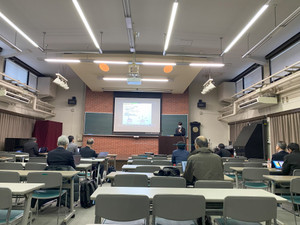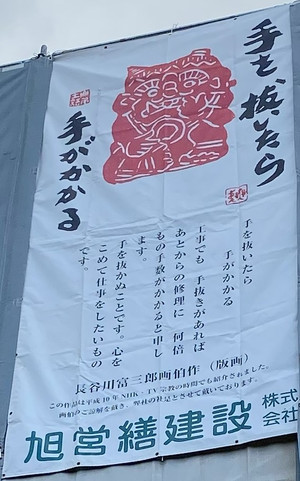As 2023 is nearing its end, I wonder how the year has been for everyone?
As for me, my year began with a burst of optimism. I chanced upon a TV show featuring a famous Japanese fortune-teller who placed me high in a luck ranking. This made me hopeful for a good year ahead. However, looking back, this year deepened my understanding of what fortune really means.
To give a hypothetic example, you faced significant challenges. Yet, you was fortunate to have the mental and physical strength to confront these trials and find solutions. It felt like luck was on your side as you overcame these obstacles. Many people prefer to avoid trials, but overcoming them can lead to substantial growth. In that sense, facing significant challenges during a lucky phase might actually be a good thing. In 2024, I aim to continue my growth and hope to be of greater service to everyone.
The concepts of 'good luck' and 'a good year' seem very abstract. Is a year without hardships or challenges considered good or lucky? It appears that people naturally dislike difficulties and trials. Many seem to strive to live life avoiding these challenges. Some, in their wish for a tranquil life, even miss out on opportunities. Yes, nothing happens when you wish for nothing to happen, including joyful events. Perhaps we should view hardships and trials as inevitable parts of life. Overcoming them is beneficial, and beyond them lies the joy of growth. And as we grow, hardships become easier to surmount. Considering this, a year of significant growth could indeed be seen as a good year, a year of good fortune.
In 2024, I, Matsunaga, will continue to grow!
Recently, I took a photo of the helipad on the rooftop of Act Tower (Okura Act City Hotel Hamamatsu) near Hamamatsu Station, now lit up for winter. The photo was taken from a tree-lined street known as Act Street, showcasing the tower. Hamamatsu Station area, now lined with tower apartments, is dominated by this 45-story skyscraper. Interestingly, this building, inaugurated in October 1994, began construction in 1991 and opened amidst the collapse of Japan's economic bubble. Many see it as a relic of the bubble era. Act City Hamamatsu was built as part of a large-scale plan during the bubble period. It includes an international conference center, concert halls, a large exhibition space, a complex commercial facility, and a musical instrument museum. The construction and the 30 years since its opening have seen various hardships. For Hamamatsu city, this tower is a landmark, but to me, it appears somewhat solemn. Fun fact: the exterior of this building appeared in the third series of the TV drama 'Furuhata Ninzaburō' in 1999. Spoiler alert: it featured a scene with "window letters" created by the light leaking from a hotel room window.






